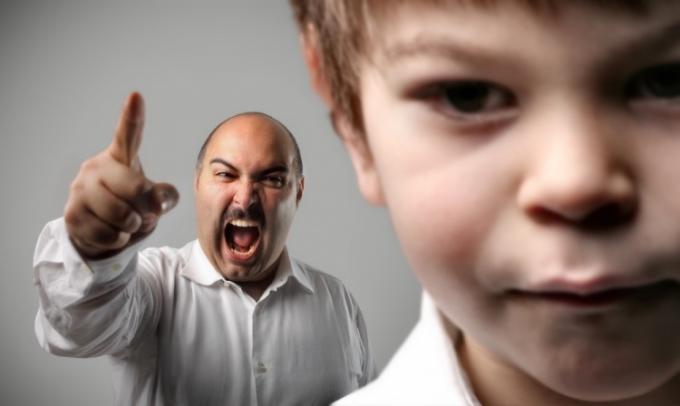Each child during his growing up commits various "bad" acts. Most often they are followed by parental punishment, which is most often just a manifestation of emotions. As a result, the educational process turns into an undermining of parental authority. The fact is that sometimes a child does not even understand why he was punished, and many words spoken by parents in a fit of anger penetrate deeply and for a long time into consciousness, settling like a heavy stone for the rest of their lives.
By showing wrong actions in relation to their child, any parent can develop various complexes in him, lowering his self-esteem. To prevent this from happening, use 5 tips, for which you absolutely cannot scold your children.
DON'T SCREAM FOR MISTAKE

Everyone can be wrong. This is what needs to be conveyed to the mind of the child, and not to scold him. Moreover, sometimes parents just need to allow the child to make mistakes. Of course, this does not apply to situations that threaten the health and life of the baby or others. Everyone knows that they learn from mistakes, and from their own, and not from others, as we have been assured for a long time.
If a child finds it difficult to do something, although he is clearly trying, criticism and punishment are unlikely to be appropriate, and the call to “turn on” the brains is especially dangerous in such cases. Rather, try to find joint solutions, helping the child with words of support to believe in himself more.
DO NOT SCARE FOR NEGATIVE EMOTIONS

Children experience negative emotions no less than their parents, but for some reason they have no right to show them. The thing is that adults are not ready to accept it. It is easier for them to shame and punish a child than to recognize his right to experience, for example, anger or disappointment.
In fact, experiencing negative emotions for the crumbs is quite normal. The task of parents in this case is to teach the child how to deal with them correctly, and not to accumulate in themselves. It is a very erroneous opinion that encouraging children's anger is a direct path to the development of aggression.
On the contrary, emotions driven deep into oneself can become the beginning of the development of various diseases, psychological complexes and, of course, hidden aggression.
DON'T SCREAM FOR POOR GRADES

When a child falls behind in school, he himself is well aware of this - criticism from parents is completely inappropriate here. In this situation, it is only important for a child to know: your love for him is unconditional and certainly does not depend on the points received. But punishment and criticism in this situation can lead to absolutely the opposite result - the child can completely "roll" in his studies, doing it absolutely intentionally.
In such a situation, only your support, praise, encouragement, attention and love can help him. Show as often as possible that you believe in him, and the result will not be long in coming. But you don’t need to embody your ambitions and unfulfilled dreams in a child - everyone has their own life path.
DO NOT SCORE FOR UNCONSCIOUS ACTIONS

A child only over time can learn accuracy, tidiness and control over his actions. Therefore, if, when trying to get a cup from the table on his own, he accidentally breaks it, this is not a reason to punish the baby.
Several such punishments will be followed by deceit and concealment of inadvertently committed acts, and not a careful attitude to things. And all because the child at such moments will be pursued only by the fear of parental anger and nothing more.
DO NOT SCORE A CHILD FOR ACTIONS THAT YOU DO YOURSELF

The rules of the family must be strictly observed by all its members without exception, since consistency and parental example are very important in raising children. Children are like sponges soaking up the situations around them and imitating their parents exactly.
Therefore, before punishing your child, for example, for “bad” words, first remove them from your vocabulary. Otherwise, it turns out that it is you who are the first to break the rules, and the child, just, is not to blame for anything. Education, first of all, must begin with yourself! Be healthy and happy!
Also, be sure to know How can you scold and not humiliate a child.


